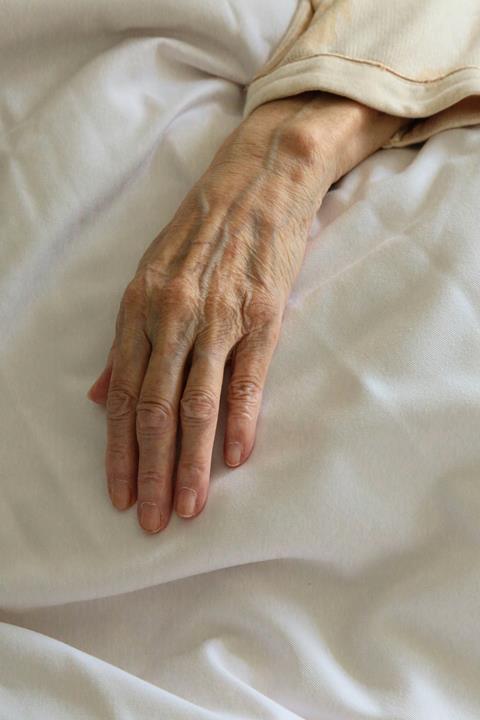Ann-Louise Graham reflects on the Assisted Suicide Bill through the lens of her faith and her experience caring for her dying father, exploring what it truly means to die well.

The controversial Terminally Ill Adults (End of Life) Bill (England and Wales) will enter the committee stage in the House of Lords on Friday, November 14. During this stage, peers will begin debating proposed amendments to the Bill in a Committee of the Whole House.
This next phase of the proposed law, commonly referred to as the Assisted Suicide Bill, follows a recent debate in the House of Lords. It also comes after peers unanimously agreed to establish a special select committee to hear expert evidence on the legislation, a process which has now concluded.
For me, this proposed legislation has become deeply personal.
For me, this proposed legislation has become deeply personal. I spent the entire summer helping to care for my terminally ill father, who very recently died at home. Throughout his illness and very real suffering, I was forced to confront my own convictions about this issue. Yet, having walked with my father through the final months and hours of his life, my position remains resolute: despite his suffering, and my own in witnessing it, we must do all we can to ensure that the ill and the dying experience dignity, respect, and kindness at the end of life, not assisted suicide or the premature ending of life.
READ MORE: Theresa May said the assisted dying bill is a ‘license to kill’
I am sure that those who support this proposed legislation would also claim that they seek to uphold dignity and respect. However, I continue to oppose it for two broad reasons. The first relates to practicalities, though let me be clear, I am opposed to it on principle.
When considering the reality of the Bill, expert witnesses have raised serious medical, legal, and ethical concerns, including the lack of effective safeguards. They have warned, for example, of the considerable risk of coercion in situations of domestic abuse, and the potential dangers posed to disabled people and those with Down syndrome. There are also very real risks to those struggling with mental ill health, particularly given that assessments could, under this legislation, be carried out via video call rather than in person.
Just as troubling is the fear that such legislation, once introduced, could expand rapidly, as has happened in other countries. And equally distressing is the possibility that people like my father, those diagnosed with serious or terminal illnesses or deemed “palliative”, might feel pressured or even obliged to opt for assisted suicide due to a perceived or actual lack of NHS or social care support.
READ MORE: Open letter to all MPs ahead of the Assisted Dying Bill Debate
Experts also pointed out the clear hypocrisy in a government that, on the one hand, invests in suicide prevention, while on the other, seeks to make legal provision for it. Tellingly, as reported, every expert witness, when asked whether the Bill was safe, either shook their heads or simply replied, “No.”
Beyond the practical and ethical concerns, there is a deeper reason I cannot support this legislation.
Beyond the practical and ethical concerns, there is a deeper reason I cannot support this legislation. At its core, it is arguably built on the false assumption that human life has no inherent or sacred value, that we are not uniquely created in the image of God. And once the sacred value of human life is divorced from our laws, we are left with a rights-based mentality, but on what ethical foundation does that stand?
Can I presume to be the captain of my own destiny and insist on the right to choose death, albeit in a regulated fashion? Or am I created in the image of God, with he alone as the author of my life and death?
READ MORE: As the Assisted Dying Bill moves to the committee stage, let’s celebrate life and protect it while we still have the chance, says Jennie Pollock
This proposed legislation has, unsurprisingly, sparked a wider discussion about the crisis in palliative and hospice care in the UK, with many arguing that this is the real issue that needs to be addressed. In countries where assisted suicide has been legalised, funding for palliative care has declined, which raises an important question: do those who refuse assisted suicide still have an equal right to a dignified death?
I take comfort in the truth that God alone knew when my father would draw his final breath. My responsibility was to love and help care for him, and to remind him of his Saviour, Jesus. It is my sincere hope that others will be given that same loving and dignified opportunity at the end of life.
Because of the many unanswered questions surrounding this bill, this stage of its journey through the House of Lords is expected to last for several months.




































No comments yet